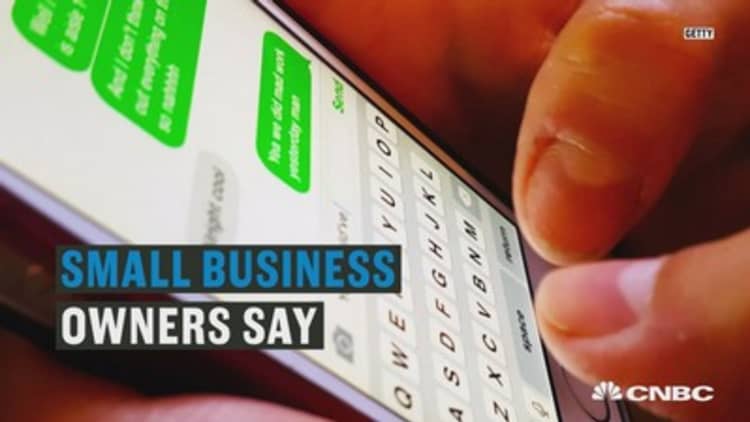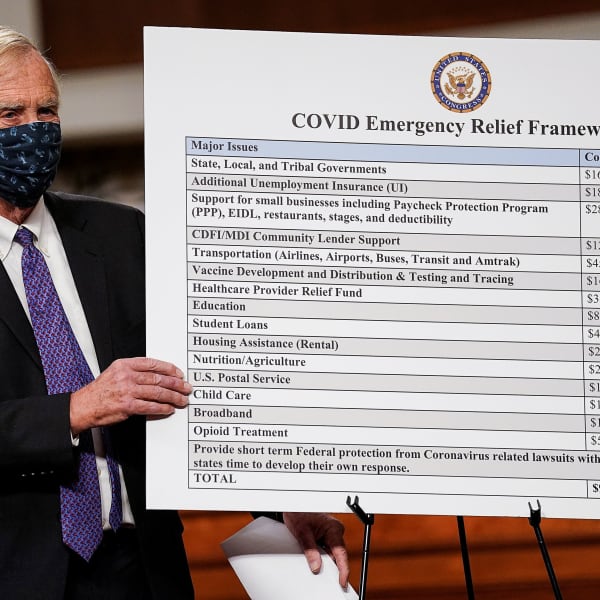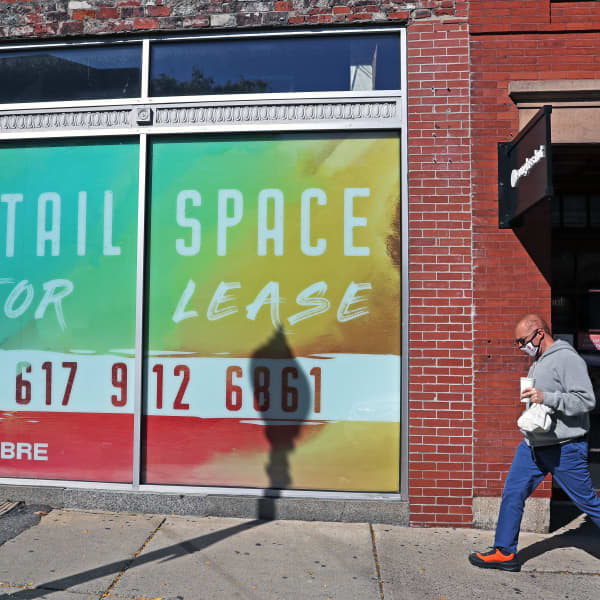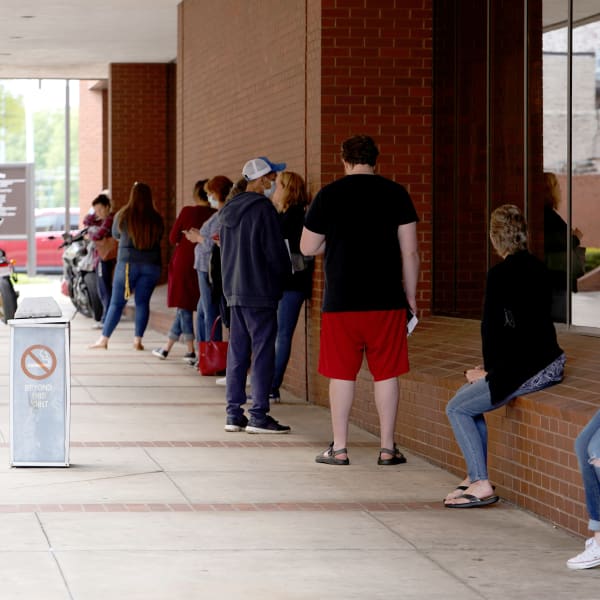Many small-business owners do things the old-school way when it comes to gaining customers: They rely on word of mouth. It's still the No. 1 marketing source of growth, according to the CNBC/SurveyMonkey Small Business Survey. But a surprising number of entrepreneurs don't back that up by also digitally getting the word out. Almost half (45 percent) say they don't have a business website. And only about one third (36 percent) use a business website to communicate news to customers and potential customers.
"People are just afraid of technology and don't realize how simple or easy it could be," said Antara Dutta, a digital marketing expert who has founded two small businesses — a consulting company that works with banks, including Barclays, and a health-and-wellness center start-up — and also serves as a mentor for the Delaware branch of the nonprofit SCORE program.
She said there are legacy business and generational issues, but you don't need to be an entrepreneur coming out of college today and already working on the seventh iteration of your website to gain value from going digital. Not doing it because of cost concerns or because you can "just continue to call on customers and then finally retire" isn't a smart strategy.
The purchase of a domain name, a site with basic business information, and search engine optimization can now be done for hundreds, not thousands, of dollars, and that expenditure should be part of the start-up costs.
"There are people who don't wake up, and then they lose their business as a result. Having a website is like having a business card," Dutta said.
Having a website and relying on word of mouth are not an either/or proposition. For B2B businesses with a handful of large clients, a website may be less crucial than for a B2C company, but Dutta said, "There is no business that shouldn't have a website."
It no longer costs thousands of dollars
Sam Wilcoxon, co-founder of Lorem Technologies — a start-up that offers website-building assistance to people already inside DIY sites, like Wix, Weebly and Squarespace — said the return on investment used to be harder for small-business owners to accept, with a website requiring the hiring of a web developer for as much as $5,000 to $10,000 and custom code.
"Web developers are no longer the gatekeepers," Wilcoxon said."The DIY ones are cheaper and good enough."
Prices have come down at the same time the value of a website has gone up, especially for retailers, based on increasing evidence that a majority of shoppers visit a website before going to a physical store to buy.
Wilcoxon said his company's analysis of the small-business market — estimated by the Small Business Administration at 28 million — is in line with the CNBC/SurveyMonkey data. Adding up the small-business websites built by the DIY players still leaves a huge chunk of the market on the table, "around half of all the potential businesses," he said.
"Our investors are betting on this explosion of DIY software across websites and digital marketing," Wilcoxon said. Lorem Technologies raised $1.1 million from investors, including Randy Parker, founder of email marketing platform Constant Contact. "It will take time for it to break through and more of them to take the leap. I think they have been underserved to date."
He and his co-founder, Charlie Fogarty, had a lot of professional experience with the reluctance and frustration of small-business owners to go digital as freelancers building websites for other people. Wilcoxon also has personal experience. "My parents are part of the problem. They are small-business owners, and I just got an email from my dad, and he is building his first website now."
The new rule in return on investment
Greg Rentschler's Chrysler Jeep Dodge Ram dealership has been in operation for more than four decades in Slatington, Pennsylvania, and his thinking about digital marketing has changed a lot since the late 1990s when "it was basically the auto manufacturers forcing digital down our throats."
A car dealership has to have inventory available online to potential customers today, regardless of its success building a business based on a long history of referrals and traction locally.
"We've been here 45 years, and we have lots of repeat and referral customers, but the trend is toward not being so loyal, especially the younger crowd if they can find it online. That can mean they go to a dealer further away than us."
Facebook advertisements have been great. ... The amount we spend and what you get out of it, it's drastically better than a billboard that's limited to one town, one road and people driving on that road.Greg Rentschlervice president, Rentschler Chrysler Jeep Dodge Ram
Digital marketing spend is now 60 percent to 75 percent of his dealership's overall marketing spend. Rentschler said that it wasn't long ago that he didn't know SEO (search engine optimization) or SEM (search engine marketing), and he used to ask himself, Why would anyone use paid search? Why don't you just go to the Yellow Pages?
"Now the return on investment for us is much higher with digital than TV, radio or newspaper," he said.
The dealership's digital marketing investment goes well beyond a website. "Facebook advertisements have been great. At first I thought that wouldn't work. But the amount we spend and what you get out of it, it's drastically better than a billboard that's limited to one town, one road and people driving on that road."
How small businesses communicate news to customers and leads
| Word of mouth | 58% |
| Social media posts | 40% |
| Business website | 36% |
| Customer newsletter or email | 26% |
| Advertising on social media | 21% |
| Advertising on the internet (not social media) | 19% |
| Advertising on the radio | 6% |
| Advertising on TV | 5% |
Source: Source: CNBC/SurveyMonkey Small Business Survey Q2 2017
Rentschler said with high-dollar purchases like cars it's more important to have a website than it is for a one- to two-person business selling lower-cost items and services. But he added, "I've got a friend who is a landscaper, and his business is growing and not through anything but word of mouth, but if you want to grow even more, you need a website. ... It doesn't matter what age you are, whether 18 or 80, everyone has a smartphone. I'm not going to a restaurant or hardware store without getting information online."
Bill Nagel, co-founder and chief marketing strategist at digital marketing firm Netsertive, said there is a long tail of small businesses where a history of word-of-mouth marketing has been enough, but the top 10 percent of businesses in a market have "really leaned into digital, even if it's a beauty salon."
More from the CNBC/SurveyMonkey Small Business Survey:
Why a majority of small-business owners are big fans of Trump tax plan
Small-business owners are highly confident about the economy
Business-owner confidence on sales isn't leading to job-creation plans
Some business owners try to use substitutes for a website, such as the Yellow Pages online, which Nagel said has been aggressive for the past three years in selling one-page basic business profiles. Many businesses also lean into a Facebook page in lieu of a website. But Nagel said it's not enough. The CNBC/SurveyMonkey research found that 55 percent of small-business owners say they have a business website, 50 percent say they have a business Facebook page, and 21 percent say they have a business Twitter account.
"Some of these small businesses say social is 'for someone else' and Google search 'is only for a certain market,' or we hear, 'People don't click on those ads.' As a market matures, you can tie this activity to business growth. ... There's a difference between wanting to be a leader in local market or just wanting to get the next order. Leaders don't rely on single solutions."






